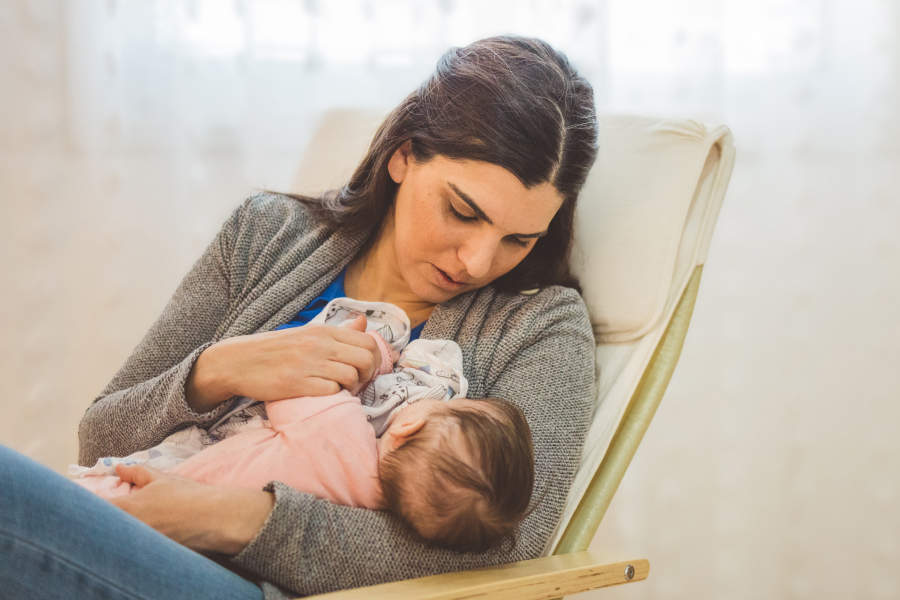The body undergoes various changes in the postpartum period. While the body’s systems start to resume their former functioning and you begin to recover and accustom to a new life, you may encounter the physical phenomena that occur after birth. Most of them are natural and require no special treatment. In this period, like in every period but especially so this time, be attentive to your body and if you feel anything is wrong, seek medical advice.
The changes that your body undergoes during childbirth:
The uterus: within two weeks of birth, the uterus will usually return to its natural place inside the pelvis. After 6 weeks, the uterus also reverts to its previous size as it was before pregnancy.
Menstruation: 70% of non-breastfeeding women will regain their menstruation within 12 weeks of birth. For women who breastfeed, on the other hand, ovulation will be inhibited and menstruation will resume on average after 6 months. In some women, menstruation will occur only 36 months (three years) after childbirth.
The breasts: after the placenta is expelled, progesterone levels decrease, and then comes the second stage of mother's milk formation, which lasts two to four days after childbirth. For two to five days after delivery, milk fills the breasts and they will become congested and full of milk. To prevent side effects such as pain and excess congestion, it is advised to breastfeed the newborn often.
Body weight: the newborn, the placenta, blood and amniotic fluid together weigh about 4.5-5.5 kg. The weight loss after pregnancy is gradual and only 28% of women return to their pre-pregnancy weight, 6 weeks after childbirth. Later, for about 6 months after delivery, the weight gradually decreases to the weight at which you became pregnant.
Hair loss: immediately after childbirth, you may feel slower hair growth, which will last 3 months on average. Usually there is no reason for concern and within a few months your hair growth will revert to its previous state.
Does breastfeeding prevent conception? No, it does not. A woman who breastfeeds exclusively (without using infant formula) may ovulate in the six months year after childbirth. If you are not interested in another pregnancy, you should use birth control methods. Ask your physician what contraceptive measures are recommended for you.

















